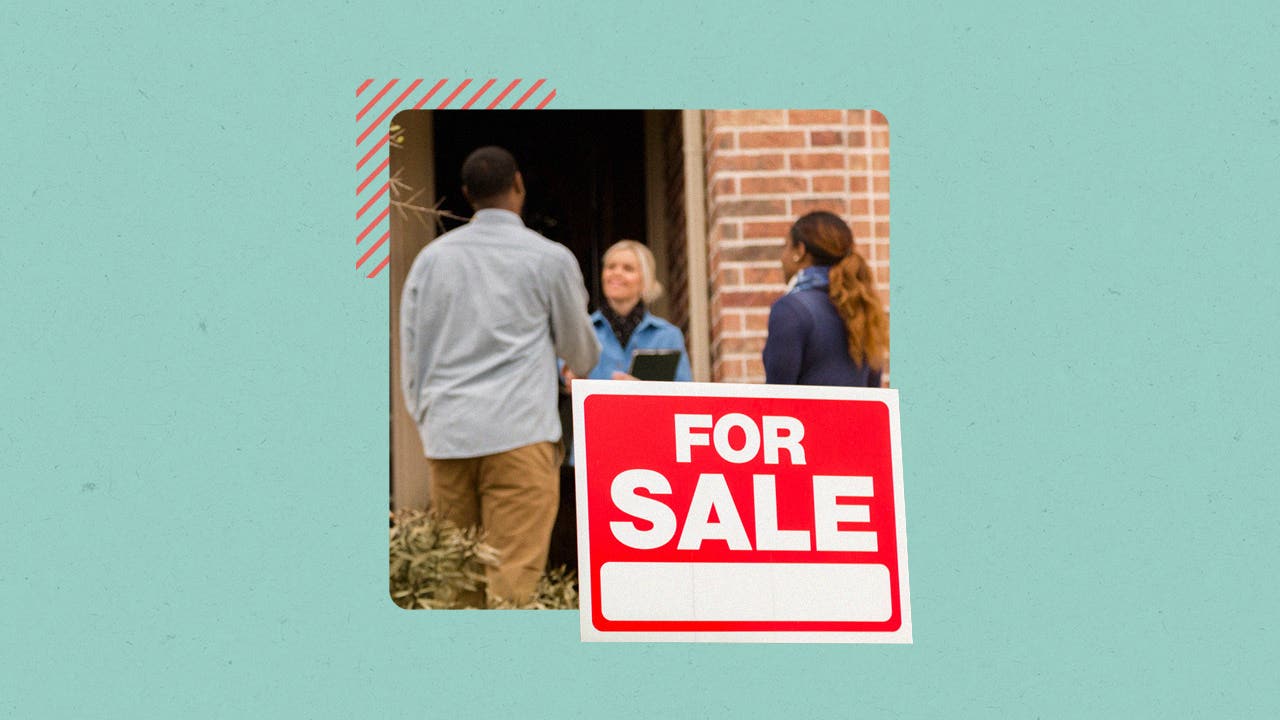How to buy a house with bad credit

Key takeaways
- You can get a mortgage with a credit score as low as 620, 580 or even 500, depending on the type of loan.
- While you might be eligible for a mortgage with a low credit score, you’ll pay a higher interest rate for the loan.
- Some mortgage lenders offer free credit counseling to help you improve your score before applying for a loan.
Want to buy a house but worried that your credit isn’t good enough to make it happen? You’re not alone. Twenty-four percent of Americans who don’t currently own a home point to their credit not being good enough as why, according to Bankrate’s 2025 Home Affordability Report.
While your credit score is the first factor mortgage lenders consider when determining whether you’re eligible for a loan, it’s not the only piece of the puzzle. In fact, there are several types of home loans for bad credit borrowers, including both conventional and government-backed options. Read on to learn how to buy a house with bad credit.
How to get a mortgage with bad credit
You can get a mortgage with a lower or bad credit score, but to do so, you’ll need to prepare financially to ensure you get the best possible loan terms. Your preparations should include working to improve your credit score before applying, as this will increase your approval odds and put you in the best spot to secure a competitive interest rate. Here are some steps to take when buying a house with bad credit:
1. Check your credit report for errors
Checking your credit report for errors can help identify any items that may be lowering your credit score. Several factors make up your credit score, including your payment history, amounts owed on current credit and how long you’ve had credit accounts. Your credit mix and new credit accounts also play a role in your score. If you see a mistake or outdated item related to any one of these factors, contact Equifax, Experian or TransUnion. Each credit bureau has a process for correcting errors and out-of-date information.
2. Pay down or pay off debt
When working toward buying a home with bad credit, try to pay down what you already owe. Lowering your debt load might not only boost your credit score but also make you eligible for a bigger mortgage, thanks to a better debt-to-income (DTI) ratio.
3. Shop around
Every mortgage lender is different, and some offer lower rates and fees than others. Research shows that getting multiple rate quotes can save you thousands over a 30-year mortgage. Check out different types of lenders, including banks and online lenders, to see where you get the best offer.
4. Find a co-signer
If you have bad credit, consider asking a family member or friend with better credit to co-sign your mortgage. This can help give your application a boost — but only if the co-signer is able and willing to take on the debt. (Note that co-signing is different from co-borrowing.)
5. Avoid too-good-to-be-true loans
If you see ads promising “guaranteed” approval for a mortgage regardless of credit, it’s a red flag. Under federal rules, a lender must verify the ability of a borrower to repay a mortgage, so there can’t be a “guarantee” unless that happens. Even if you get that guaranteed approval, it usually comes with excessive or inflated costs.
6. Consider a rapid rescore
Credit report changes can take time to go through the system, so improved scores might not show up in time for a mortgage application. In this case, you can try getting a rapid rescore through your lender. In this process, your lender submits proof to a credit agency that an applicant has made recent changes or updates to their account that are not yet reflected on their credit report. You’ll need to pay for this service, but the expense might be a worthwhile trade-off to get a better interest rate.
Types of bad credit home loans
| Loan type | Credit score minimum |
|---|---|
| Conventional loan | 620 or 660 depending on program |
| FHA loan | 580 (or 500 with a minimum 10 percent down payment) |
| VA loan | No official requirement, but typically 620 |
| USDA loan | No official requirement, but typically 640 |
Conventional loans
Fannie Mae and Freddie Mac each back conventional loans with a lower minimum credit score of 620 and 660, respectively. Both of these loans require just 3 percent down and may offer either a fixed or variable interest rate. Conventional mortgages, however, may have stricter qualification criteria than other types of mortgages, such as FHA or VA loans.
FHA loans
The Federal Housing Administration (FHA) insures FHA loans, which allow mortgage lenders to accept a credit score as low as 580 with a 3.5 percent down payment, or 500 with a 10 percent down payment. Because of the lower down payment requirement, FHA loans can be particularly appealing if you’re a first-time homebuyer with bad credit. However, while these government-backed home loans have more lenient qualifying criteria, they come with mortgage insurance premiums (upfront and annual) that you’ll need to pay no matter your down payment size.
VA loans
If you’re a military member, veteran or married to someone who has served in the armed forces, you could benefit from a VA loan backed by the U.S. Department of Veterans Affairs. Although there isn’t a minimum credit score for VA mortgages, many lenders do require a score of at least 620. No down payment is necessary with this loan, but you’ll need to pay the VA funding fee.
USDA loans
If you have a lower income and want to buy a home in a particular rural area, look into a USDA loan. While not a hard-and-fast rule, most USDA-approved lenders require a minimum credit score of just 640. Like VA loans, USDA loans come with no down payment requirement.
How do mortgage lenders evaluate credit?
Lenders rely on data from the three main credit reporting bureaus, Equifax, Experian and TransUnion. Typically, a lender looks at the middle credit score of the three when considering you for a mortgage. In addition to your scores, the lender will look at your credit report, including total debt and any issues like defaults or late payments.
Mortgage lenders most often use the FICO credit scoring model to assess creditworthiness. Here’s how those ratings work:
| Credit score range | Rating |
|---|---|
| Below 580 | Poor |
| 580-669 | Fair |
| 670-739 | Good |
| 740-799 | Very good |
| 800 or above | Excellent |
| Source: FICO |
The average credit score of outstanding mortgages in the U.S. as of the first quarter of 2025 was 742, according to the Federal Housing Finance Agency.
How much will a low credit score cost you?
A poor credit score will primarily cost you in the way of a higher interest rate. Here’s an example assuming a 30-year conventional loan for $400,000:
| Credit score | APR | Monthly payment | Total interest paid |
| 740+ | 6.375% | $2,495 | $498,373 |
| 720-739 | 6.495% | $2,527 | $509,705 |
| 700-719 | 6.505% | $2,530 | $510,652 |
| 680-699 | 6.625% | $2,561 | $522,048 |
| 660-679 | 6.638% | $2,565 | $523,286 |
You can calculate your own payment using Bankrate’s mortgage calculator.
FAQ
Why we ask for feedback Your feedback helps us improve our content and services. It takes less than a minute to complete.
Your responses are anonymous and will only be used for improving our website.
You may also like

Best FHA mortgage lenders in 2025

How to buy a house from a family member

Buying a home after foreclosure

What is a good credit score to buy a house?



